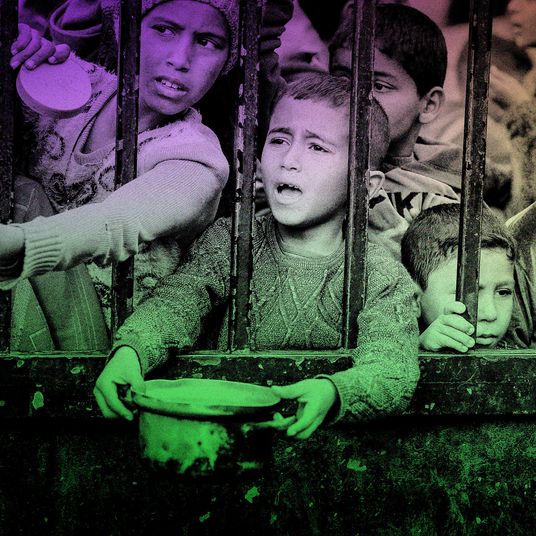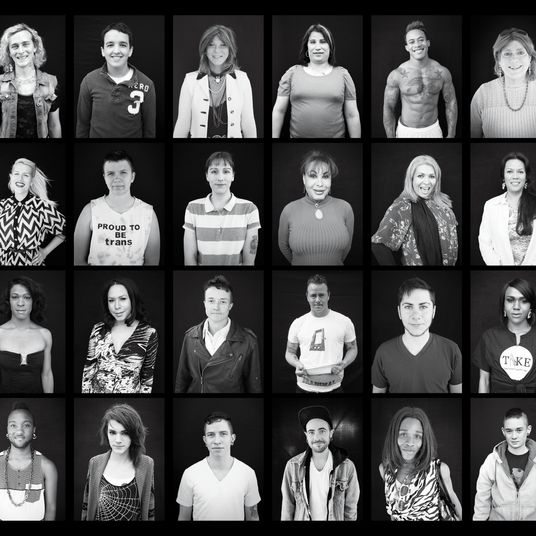Last Monday was the hottest day in recorded history. That record was promptly broken the next day — then smashed again two days after that. Scientists estimated that the last time the planet reached this level of warmth was at least 125,000 years ago. Tens of millions of Americans are feeling it: A heat dome sitting over Texas has left the state parched as the deaths of the most vulnerable mount. Miami has faced a triple-digit heat index every day for a month straight. Phoenix could break its record of 18 straight days with highs over 115 degrees.
Each year brings a new understanding of the dangers of extreme temperatures in our lifetime — a topic that science writer Jeff Goodell explores in his new book, The Heat Will Kill You First. Heat has well-known amplifying effects on the intensity of hurricanes and wildfires, but Goodell largely reckons with the danger of extreme temperatures themselves. I spoke with Goodell to get a sense of what we’re facing this summer and the uncertainty to come.
Aside from the heat in the American south and southwest, cities in China and Europe are baking, and remote northern Canada is seeing 100-degree temperatures. How do you think we should understand what’s going on? Is this the new normal?
I really resist the phrase new normal because one of the biggest and most important ideas here is that we’re moving into a climate realm in which there is no normal. Nobody knows what the rules are — that’s what is most alarming about all of this. The past is no prediction for the future here. As we put more CO2 into the atmosphere, we’re pushing the climate in ways where we don’t know what the real extremes could be. All these things we’re seeing right now are more extreme than what even the so-called alarmist scientists talked about decade ago. We’re seeing more climate sensitivity to CO2 warming than we’ve already had. And we’re going to keep burning more fossil fuels and warming the climate, so these extremes are going to get even more extreme.
You write about the tendency of people to forget about past heat waves “like the fleeting images of a nightmare you’re not quite sure you had.” Do people underestimate the threat of heat qua heat because of this?
One of the reasons it’s so forgettable is because it’s invisible. It doesn’t imprint ourselves on our brains in the way a hurricane does. Everyone watches them on TV, and the water is surging, the roofs are blowing off. Drought has very powerful images — parched landscapes and diminishing reservoirs in the west. There are no powerful images of heat. When we represent heat in the media, it’s kids playing in the fountain or something like that. The invisible-ness of it makes it very difficult to communicate the urgency of the threat.
That’s kind of the point of the title then, huh.
I called the book The Heat Will Kill You First because when you think about climate impacts, heat kills far more people than anything else. Heat is the driver of all other climate impacts, from increased rainfall to bigger wildfires to melting glaciers that cause sea level rise and will have a profound impact on virtually every coastal city in the world.
But you’re not going to sit on the beach in Miami and drown of sea-level rise. In Texas or in Phoenix where it’s 115 degrees, you walk outside and if you’re out there too long, or if you have health issues, you could die in hours.
A study out this week in the journal Nature Medicine estimated that over 61,000 people died in last summer’s heat wave in Europe — which is nearly as deadly as the infamous 2003 heat wave on the continent. Considering that two decades have gone by, I was wondering how prepared we are for the increase in temperature in a world already warmer by about 2 degrees Fahrenheit.
It’s hard for me to overstate how profoundly unprepared we are. Nothing about the way we live is ready for this. People think “oh why can’t we just turn on the air conditioning? Everything will be fine.” The problem is, billions of people on the planet don’t have air conditioning or access to it. Millions of people who do have access to AC can’t afford to run it. But heat also impacts all living things. We can’t air condition the natural world and the fields that feed us. The idea that we can deal with the heat by turning on the air conditioner is a profound misunderstanding of the threat that we face here. The risks are very urgent and very clear and we don’t know very much about it and we need to get smart about this right now.
I liked your phrase “sweat economy,” which refers to the physical labor done in extreme heat that we depend on. What is going to happen to that massive sector of workers as the climate gets warmer and more unpredictable?
They’re either going to die in the heat or have to change their work hours and how they work. The idea that we don’t have any federal laws protecting workers, mandating breaks, getting rest and water is completely outrageous. It’s like something from The Jungle. Here in Texas, Governor Abbott just signed legislation banning local authorities from mandating any kind of water or shade breaks for construction workers. It’s just brutal.
In the book, you address the “urgent question” of how hot it can get in the very near future. What’s your thinking there?
It’s a haunting question. Scientists cannot say it’s not going to any hotter than 120 in Austin, for example. No one imagined in 2021 that it would be 120 degrees in British Columbia. That was like snow on the Sahara or something — beyond any modeling or anything like that.
And what are the upper boundaries of where we’re at? Could it get to 130 in Phoenix? No scientist that I talked to could rule that out. We’re moving into a new era where we don’t know what the rules are and we’re pushing this climate system so hard that we don’t know how bad it can get how fast. And that’s not to be alarmist, that’s just being a realist about what is happening around us right now.
This interview has been edited for length and clarity.


























